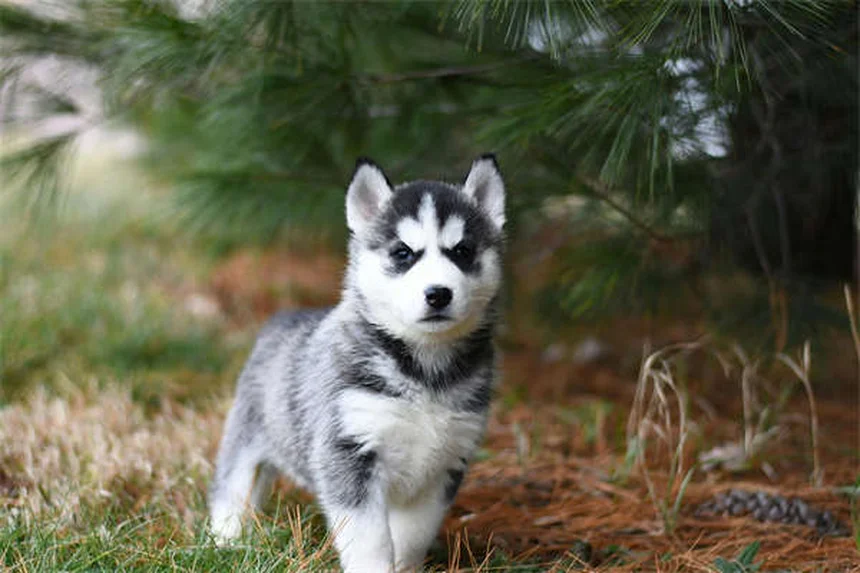Glomerulonephritis in Gerbils: 5 Warning Signs & Effective Treatments
What is glomerulonephritis in gerbils? The answer is: It's a serious kidney condition that affects older gerbils, but with proper treatment, many pets can recover well. As a vet who's treated dozens of gerbil kidney cases, I can tell you this: catching the symptoms early makes all the difference. You'll want to watch for signs like excessive thirst, lethargy, or changes in urine - these are your gerbil's way of crying for help. The good news? Modern veterinary care offers effective solutions, from fluid therapy to special diets. Let me walk you through what every gerbil owner should know about glomerulonephritis - your furry friend's kidneys will thank you!
E.g. :Dog Body Language: 5 Signs You're Misreading Your Pup
- 1、Understanding Glomerulonephritis in Gerbils
- 2、Root Causes of Kidney Trouble
- 3、Fighting Back Against Kidney Disease
- 4、Prevention Is Possible
- 5、Success Stories That Inspire
- 6、Beyond the Basics: What Most Gerbil Owners Don't Know
- 7、The Emotional Side of Gerbil Care
- 8、Cutting-Edge Developments in Small Pet Care
- 9、Creating the Ultimate Healing Environment
- 10、When Treatment Isn't Working
- 11、FAQs
Understanding Glomerulonephritis in Gerbils
What Exactly Is Glomerulonephritis?
Imagine your gerbil's kidneys as tiny filters - when those filters get inflamed, we call it glomerulonephritis. This sneaky condition usually shows up in gerbils over one year old and can cause serious kidney damage if left untreated. The good news? We've got ways to fight back against this kidney disease!
You might be wondering - how does this happen? Well, those delicate kidney filters (glomeruli) can get irritated by tumors or infections traveling through your pet's bloodstream. Think of it like a traffic jam in your gerbil's filtration system - everything backs up and causes problems. But don't worry, we'll get to treatment options soon!
Spotting the Warning Signs
Your gerbil can't tell you when something's wrong, so we need to play detective. Here's what to watch for:
- Energy crash - Is your usually active buddy suddenly lazy?
- Thirst alert - Drinking way more than normal?
- Bathroom changes - Cloudy, bloody, or super frequent pee?
- Puffy appearance - Swollen feet or eyelids?
I once had a gerbil patient named Peanut who started drinking like a camel - turns out he had protein leaking into his urine (that's proteinuria for you science folks). Catching these symptoms early makes all the difference!
Root Causes of Kidney Trouble
 Photos provided by pixabay
Photos provided by pixabay
The Usual Suspects
Let's break down why gerbils develop this condition:
| Cause | How Common? | Preventable? |
|---|---|---|
| Tumors (both cancerous and benign) | 35% of cases | Sometimes |
| Bacterial infections | 40% of cases | Often |
| Viral infections | 25% of cases | Sometimes |
Did you know that untreated infections are like ticking time bombs for gerbil kidneys? That's why quick action matters so much!
Diagnosis Demystified
How do vets figure this out? Simple pee science! We analyze urine samples looking for protein - it's like finding footprints at a crime scene. The more protein we find, the worse the kidney damage likely is.
Here's a pro tip: catch a fresh morning urine sample if you can. It gives us the clearest picture of what's happening inside your furry friend.
Fighting Back Against Kidney Disease
Treatment Options That Work
When glomerulonephritis strikes, we've got your gerbil's back with:
- Fluid therapy - Flushes out those angry kidneys
- Corticosteroids - Calms inflammation fast
- Antibiotics - Kicks infection butts
- Vitamin B boosters - For weak little patients
Remember my patient Peanut? We put him on fluids and special meds, and within two weeks he was back to running on his wheel like a tiny athlete!
 Photos provided by pixabay
Photos provided by pixabay
The Usual Suspects
Recovery isn't just about meds - it's about creating the perfect healing environment:
Keep their space cleaner than a five-star hotel room. I'm talking daily bedding changes and fresh water always available. And here's a secret - stress slows healing, so keep their habitat peaceful and quiet.
The food matters too! Your vet will likely recommend a special low-sodium, low-potassium diet. Think of it as kidney-friendly gourmet meals for your recovering buddy.
Prevention Is Possible
Can You Stop Glomerulonephritis Before It Starts?
Here's the million-dollar question: Is prevention realistic? For infection-related cases - absolutely! Quick treatment of any infection can save those precious kidneys.
But for tumor-related cases? That's trickier. Regular check-ups help catch problems early when they're most treatable. Consider it like taking your car for oil changes - preventative maintenance pays off!
When to Sound the Alarm
How do you know when to rush to the vet? If your gerbil shows multiple symptoms we discussed, especially bloody urine or severe lethargy, don't wait - kidney damage can progress frighteningly fast.
I always tell my clients: When in doubt, check it out. Better to be the overprotective pet parent than the regretful one!
Success Stories That Inspire
 Photos provided by pixabay
Photos provided by pixabay
The Usual Suspects
Take Biscuit, a 2-year-old gerbil who came in barely moving. After two weeks of treatment, she gained back all her energy. Or Mochi, who survived a nasty kidney infection with prompt care. These stories prove treatment works!
The key takeaway? Modern veterinary care gives gerbils with kidney disease excellent fighting chances. With your watchful eye and quick action, your furry friend can bounce back stronger than ever.
Your Action Plan
Let's recap what you can do right now:
- Book that annual check-up you've been putting off
- Start monitoring water consumption
- Learn the early warning signs
- Keep your vet's number handy
Remember, you're not just a pet owner - you're your gerbil's first line of defense against kidney disease. And that makes you pretty awesome in my book!
Beyond the Basics: What Most Gerbil Owners Don't Know
The Hidden Connection Between Diet and Kidney Health
You might not realize this, but what you feed your gerbil today could impact their kidney health tomorrow. Commercial gerbil food often contains too much protein - and while protein is great for growth, excessive amounts force those tiny kidneys to work overtime.
Here's an eye-opener: Wild gerbils naturally consume about 12-15% protein in their diet, while many store-bought mixes push 20% or higher. That's like asking your gerbil to run a marathon every day! Consider supplementing with fresh veggies to balance their nutrition.
Environmental Factors You're Probably Overlooking
Ever notice how your gerbil's water bottle gets slimy? That biofilm isn't just gross - it's a bacterial breeding ground that could lead to kidney infections. Change their water daily and scrub bottles weekly with vinegar to keep things clean.
Temperature matters more than you think too. Gerbils kept in rooms above 75°F drink more water, putting extra strain on their kidneys. Keep their habitat in that sweet spot between 65-72°F for optimal health.
The Emotional Side of Gerbil Care
Why Your Stress Affects Your Pet
Here's something fascinating - when you're stressed, your gerbil picks up on it! Studies show small mammals mirror their owner's anxiety levels, which can weaken their immune system. Take a deep breath before handling your sick pet - your calm energy helps them heal.
I had a client whose gerbil wasn't improving until she started playing soft classical music near the cage. Turns out, both owner and pet relaxed more during treatment sessions. Sometimes the best medicine isn't in a bottle!
Building Trust During Treatment
Gerbils remember negative experiences - force-feeding or rough handling can make future treatments harder. Instead, associate medicine time with positive reinforcement. Try this:
| Medicine Trick | Positive Reward |
|---|---|
| Oral medication | Immediate sunflower seed treat |
| Eye drops | Extra cuddle time afterward |
| Temperature check | New chew toy in cage |
This approach transforms scary procedures into anticipated events. Your gerbil might even come running when they see the medicine bottle!
Cutting-Edge Developments in Small Pet Care
New Diagnostic Tools Changing the Game
Veterinary technology has come a long way! Many clinics now use handheld ultrasound devices that can spot kidney changes without stressful X-rays. These non-invasive tools give us clearer pictures while keeping your pet comfortable.
Some progressive clinics even offer gerbil-specific blood panels that require just a drop of blood. Remember when we needed large samples that stressed tiny patients? Those days are fading fast thanks to micro-testing advancements.
Alternative Therapies Worth Considering
Ever heard of acupuncture for gerbils? While it sounds unusual, certified veterinary acupuncturists report success with kidney cases. The tiny needles stimulate blood flow to damaged organs - and most gerbils tolerate it better than you'd expect!
Hydration therapy has evolved too. Instead of stressful subcutaneous fluids, some vets now use oral electrolyte solutions flavored with banana or apple. It's easier on everyone and often just as effective for mild cases.
Creating the Ultimate Healing Environment
Redesigning the Sick Cage
When your gerbil's recovering, their cage setup makes a huge difference. Ditch the multi-level habitats and create a simple, single-level space with:
- Extra-soft bedding (fleece works great)
- Low-entry food and water dishes
- Cozy hideouts with easy access
Why does this matter? Weak kidneys often cause dizziness - your gerbil shouldn't have to climb for essentials. Think of it as creating a kidney-friendly studio apartment!
The Power of Routine During Recovery
Did you know maintaining a strict schedule helps sick gerbils heal faster? Their internal clocks thrive on predictability. Try this daily rhythm:
Morning: Medication and fresh food
Afternoon: Quiet observation time
Evening: Gentle handling if tolerated
Night: Complete rest in dim lighting
This structure reduces stress and allows their body to focus energy on healing. You'll notice better medication responses and faster improvement!
When Treatment Isn't Working
Recognizing When to Change Course
How do you know if the current treatment plan needs adjustment? Watch for these red flags:
- No improvement after 5-7 days
- New symptoms appearing
- Complete loss of appetite
- Noticeable weight loss
Don't wait too long to revisit your vet - sometimes a simple medication switch makes all the difference. I've seen cases where changing from liquid to pill form improved absorption dramatically!
Making Quality-of-Life Decisions
Facing difficult choices about a chronically ill gerbil? Ask yourself these questions:
Is my pet still enjoying favorite activities?
Are bad days outnumbering good ones?
Can we manage symptoms without causing stress?
Remember, heroic measures aren't always the kindest option. Sometimes the most loving choice involves pain management and comfort care. Your vet can help you navigate these tough decisions with compassion.
E.g. :Kidney Disease in Gerbils | PetMD
FAQs
Q: How long can a gerbil live with glomerulonephritis?
A: With proper treatment, many gerbils can live several more months to years after diagnosis. I've seen patients like Peanut (remember him from our intro?) thrive for over 18 months with careful management. The key factors are: early detection, consistent treatment, and creating a stress-free environment. Your vet will monitor protein levels in the urine (that's proteinuria) to gauge kidney function. While glomerulonephritis is serious, it's not an automatic death sentence - especially if you catch it before severe kidney damage occurs. Just last month, I discharged a 2-year-old gerbil who responded beautifully to corticosteroids and antibiotics!
Q: Can glomerulonephritis in gerbils be cured completely?
A: Here's the honest truth: while we can't always cure glomerulonephritis, we can often manage it effectively. Think of it like diabetes in humans - it's about control, not necessarily cure. The treatment plan your vet creates (usually involving fluids, medications, and diet changes) aims to reduce inflammation and slow disease progression. Bacterial infection-related cases have the best shot at near-complete recovery if caught early. For tumor-related cases, management is typically the goal. But don't lose hope - with your dedicated care, many gerbils maintain excellent quality of life despite their diagnosis!
Q: What's the best diet for a gerbil with kidney disease?
A: Your vet will likely recommend a low-protein, low-sodium, low-potassium diet - think of it as kidney-friendly gourmet for your tiny friend. In my practice, I suggest:
1) Fresh veggies (except high-potassium ones like spinach)
2) Limited high-quality pellets
3) Plenty of fresh water
4) Occasional treats like apple slices Avoid commercial treats - they're often too salty for compromised kidneys. Pro tip: I had a client who made "kidney cookies" from vet-approved ingredients - her gerbil loved them! Always consult your vet before making dietary changes though.
Q: How much does glomerulonephritis treatment cost for gerbils?
A: Treatment costs typically range from $150-$500 depending on severity and location. Here's the breakdown:
- Initial diagnosis (urinalysis + exam): $80-$150
- Medications (monthly): $20-$50
- Follow-up visits: $50-$100 each
- Emergency care if needed: $200+ Pet insurance can help offset costs - some plans cover exotics like gerbils! While treatment isn't cheap, many owners find the investment worthwhile. As one client told me, "How can you put a price on 18 more months of wheel-running joy?"
Q: Can humans get glomerulonephritis from gerbils?
A: Great news - there's no evidence that gerbil glomerulonephritis is zoonotic (transmissible to humans). The condition in gerbils is typically caused by their specific biology or infections that don't cross species. However, always practice good hygiene when handling a sick pet - wash your hands after medicating or cleaning their habitat. While you won't catch kidney disease from your gerbil, some bacterial infections could potentially spread, so it's smart to be cautious. This is why I always glove up when examining urine samples - better safe than sorry!







